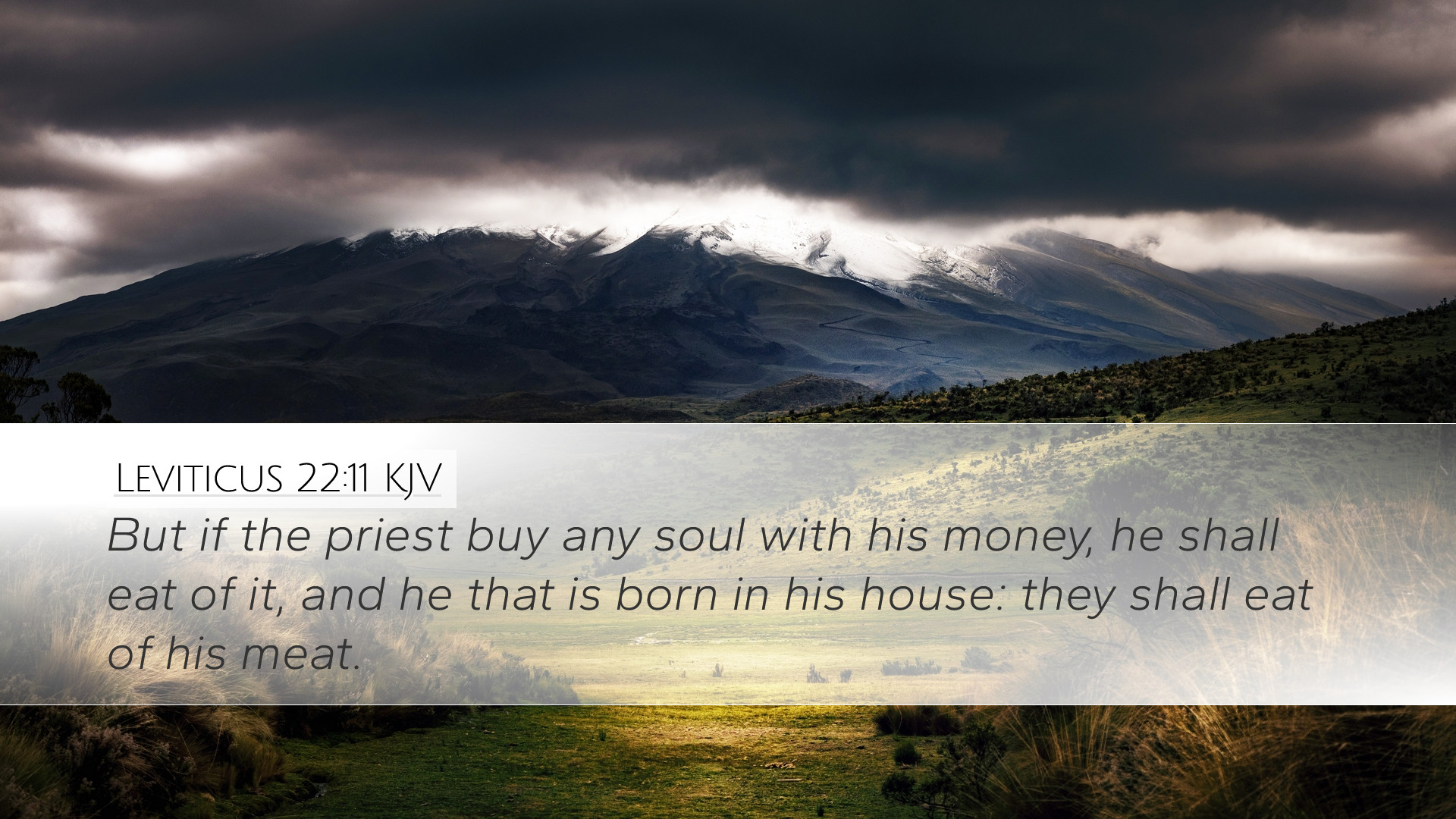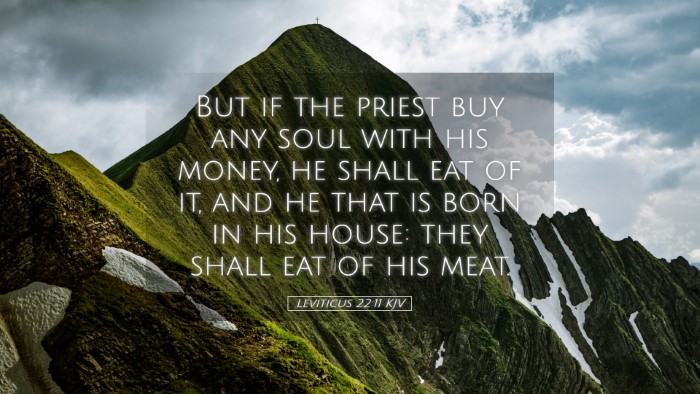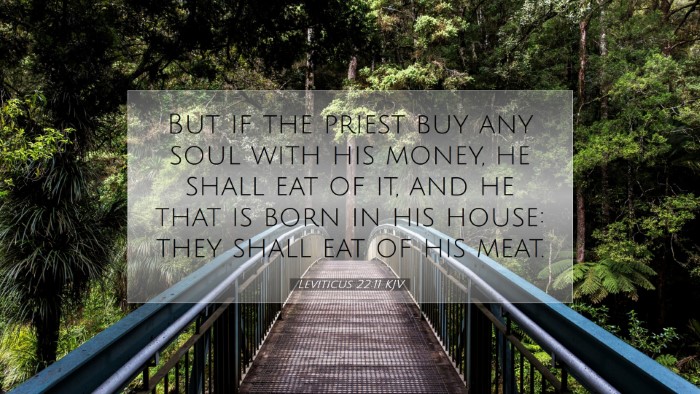Commentary on Leviticus 22:11
Verse (Leviticus 22:11): "But if the priest buy any soul with his money, he shall eat of it, and he that is born in his house: they shall eat of his meat."
Introduction
This verse is part of the broader framework of Levitical laws concerning purity, holiness, and the privileges afforded to priests. Understanding the cultural and theological implications is crucial for pastors, students, and theologians alike, as it provides insight into God’s standards for worship, community, and divine service.
Contextual Overview
Leviticus establishes the holiness code for Israel, distinguishing the conduct required of the priesthood from that of the laypeople. The priest, as an intermediary between God and the people, must adhere to strict regulations concerning what is permissible for consumption and the manner in which sacred offerings are handled.
Exegesis and Commentary
Understanding the Priest's Privilege
Matthew Henry notes that although the priests were held to a higher standard of holiness, they also received privileges that came as part of their calling. Leviticus 22:11 reflects how a priest’s status allowed him to possess and consume flesh from both the sacrifices and from people (servants or redeemed individuals) born into his household.
Wealth and Redemption
Albert Barnes emphasizes the sociocultural backdrop against which this law was established. It was customary in ancient Israel for priests to acquire servants and household members through transactions, which, due to their status as belonging to the priest, permitted them to partake in the meat that would typically be reserved for offering. This reflects the intertwining of economic structure with religious duty.
Spiritual Meaning
Adam Clarke interprets this law in the light of spiritual service and community. The priest's ability to partake of certain offerings signifies that those who are devoted to God’s service should not feel deprived of the fruit of their labor and dedication. The priests’ consumption of the meat symbolizes spiritual nourishment that comes from a life dedicated to God.
Theological Implications
This verse illustrates a vital concept within the sacrificial system of Israel - the principle that God provides for those who serve Him faithfully. In essence, it mirrors New Testament themes where priests have a role similar to that of modern-day pastors or church leaders, who shepherd their congregations and are also sustained by the community they serve.
The Honor of Service
The verse highlights God's acknowledgment of the laborious and sacrificial nature of the priesthood. The priest was not merely a ceremonial figure, but rather someone who engaged in God's work on behalf of the people. His sustenance from what was considered holy illustrates a reciprocal relationship between God and His ministers.
Principles for Today’s Ministry
- Value of Service: Contemporary ministers should recognize the value of their calling and the sustenance that comes from serving God and His people.
- Community Responsibility: Just as the priest had responsibilities towards those born into his household, modern leaders must care for their spiritual families.
- Holiness in Provision: God's provision is always tied to holiness and purpose; hence, modern interpretations should emphasize integrity in all aspects of ministry.
Practical Applications
The practical implications of Leviticus 22:11 extend beyond the ceremonial. Church leaders today are encouraged to embrace their role as both servants and shepherds, ensuring that they engage with their community meaningfully. This entails being aware of one’s spiritual and physical sustenance while also aligning one's life with God’s standards of holiness.
Conclusion
Leviticus 22:11 serves as a reminder of the profound realities of the priestly role in Israel’s religious life. Understanding its implications helps modern believers comprehend the importance of holiness, service, and community in their spiritual practice. As they engage with the text, they are invited to reflect on how God continues to provide for and sustain those who serve Him.


